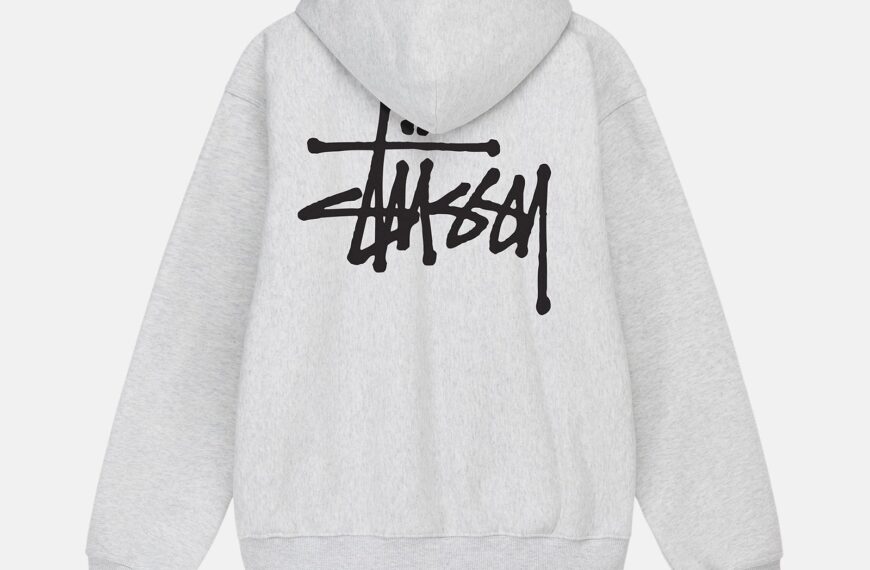Okay, let’s get real here: my Playboy x Palm Angels hoodie is my summer style crush, and I’m totally smitten. It’s Monday night, June 2, 2025, 6:16 PM PKT, and I’m just lounging in this hoodie, feeling like I can just stroll onto a music video set and be the scene-stealer. Why My Playboy x Palm Angels Hoodie Is My Summer Style Crush. https://pbcclothings.net/ This is not just some throw-on sweatshirt—I’m talking my energy, my confidence, my “I’m ready to slay” vibes. Whether I’m grabbing iced coffee with my squad or making a late-night beach sesh, this hoodie makes me feel like a streetwear queen. Want to know why I’m so obsessed? Get a snack, relax, and let’s get into why this Playboy x Palm Angels hoodie is my summer obsession.
What’s the Fuss About Playboy and Palm Angels?
Playboy and Palm Angels are the ultimate streetwear power couple, and their collab hoodie is literally magic. Playboy’s got this legendary, rebellious cool factor going on, while Palm Angels has this LA skate culture attitude. Why My Playboy x Palm Angels Hoodie Is My Summer Style Crush. When they come together, they’re serving up looks that are making me and my squad go wild. In 2025, I’m spotting this collab everywhere—on X, on my friend’s fit pics, even on the barista at my favorite coffeehouse. It’s all about that cool-kid vibe that makes you feel like you’re in on something big, and I’m here to dish why it’s got me so hooked.
Playboy’s Timeless Cool Factor
Playboy’s been hip since the dawn of time, from its beginnings as a ’50s magazine to becoming a cultural phenomenon with that iconic bunny logo. It’s all about that carefree, cheeky attitude that yells, “I do what I want.” Over the last few years, Playboy’s experienced a massive resurgence in streetwear, dropping collabs that blend nostalgia with contemporary drip. Why My Playboy x Palm Angels Hoodie Is My Summer Style Crush. palmangelshoodies The Playboy x Palm Angels hoodie carries that legacy, making me feel like I’m channeling that OG rebellious spirit with a 2025 twist. It’s like wearing a piece of history that’s still fresh.
Pam Angels’ LA Skate Vibes
Palm Angels, founded by Francesco Ragazzi, is like the lovechild of Italian style and LA skate culture. It began with Ragazzi taking photos of skaters at Venice Beach, and now it’s a streetwear behemoth synonymous with loud graphics and baggy fits. Their clothing is like a warm day at a boardwalk—daredevil, laid-back, and attitude-heavy. When I heard their collaboration with Playboy, I was like, “Yo, this is gonna be lit.” The hoodie has Palm Angels skate in it, and I’m getting all the feels
Why the Playboy x Palm Angels Hoodie’s Got Me Hooked
Not all hoodies can get my heart racing, but the Playboy x Palm Angels? It’s making me behave foolish. It’s such a song you play over and over again—fashionable, cozy, and a guaranteed mood-booster. Both in appearance and in how it envelops me in warm goodness, this hoodie is my summer essential. Let’s dissect why I’m so obsessed.
Design That Screams Drip
This hoodie’s graphic is reminiscent of a mic drop. It has Playboy’s recognizable bunny emblem blended with Palm Angels’ aggressive “Die Punk” graphics for a look that’s nostalgic and in-your-face. The loose fit is ideal for that easy streetwear style, and the bright prints have the kind of impact like nobody’s watching. I got mine in black with multicolor details, and whenever I wear it, my friends are like, “Girl, you’re serving!
even if I’m just grabbing tacos.
Comfy Like a Late-Night Drive Comfort’s where this hoodie’s got me swooning. It’s made with a cotton-poly blend that’s so soft, it’s like cruising down the coast with the windows down. But it’s light enough to keep me from melting in the summer heat. The relaxed fit allows me to move around, whether it’s dancing at a block party or simply relaxing on my couch with a popsicle. I recently wore it on a swelteringly hot day, and I felt like a nice breeze was cooling me down.
It’s snuggly but not claustrophobic, and I’m loving every minute of it.
Why I’m Rocking This Hoodie All Summer Long
Summer’s my time to live it up, and the Playboy x Palm Angels hoodie’s my ride-or-die. It’s like my favorite iced latte—always refreshing, always perfect. Whether I’m hitting up a farmers’ market or just vibing with my pup, this hoodie’s my go-to. Here’s why I’m rocking it every dang day from June to August.
Fits Every Summer
Adventure This hoodie is like my summer sidekick, game for whatever plan I have. Beach party? I’m wearing it with cut-off shorts and flip flops. Coffee date? Adorable with jeans and my go-to sneakers. I did a friend’s rooftop BBQ in it with a flowy skirt, and everyone was like, “You’re killing it!
I’m ready to hit up a flea market or take a quick X selfie.
I was at the beach and I saw this dude wearing a similar hoodie and joggers, and I was like, “Okay, that’s a vibe!” ” The hoodie’s pulling everything together, so I just make the rest easy. Dressing It Up for Nighttime Events This hoodie’s has some big-time nighttime glamour.
I’ll pair it with black ripped jeans
Add on some chunky gold chains or a sweet tote, and I’m set for a rooftop club or a summer festival.”. My BFF wore a similar hoodie with a satin skirt and boots to a night out at the bar, and I was like, “Wait, I’m appropriating that!
” It’s all about blending comfortable with a touch of glam to turn every head. How This Hoodie Stacks Up Against Others I have a closet full of hoodies, but the Playboy x Palm Angels one’s the one I won’t stop wearing. In contrast to something from H&M or Nike, it’s just got this little bit extra that makes it different. Here’s why it’s my favorite. Worth Every Dollar At $150-$250, this hoodie’s a little pricey, but it’s worth every penny
H&M hoodies are adorable for $20, but they begin to pill after a few cycles.
Nike’s got athletic ones for $50, but they’re less edgy. My Playboy x Palm Angels hoodie’s been on beach vacations, late-night outings, and it still looks fresh out the bag—no fading, no stretching. It’s like investing in a quality pair of shades; you pay more, but they’re flawless.
Red Flags to Avoid
I always inspect the logo and graphics—the Playboy bunny and “Die Punk” print need to be crisp and colorful, not faded or blurry. Fakes will have thin, crooked stitching or cheap-looking fabric. I noticed a “deal” on the internet for $50, but the neck tag had a spelling mistake—giant red flag. Authentic hoodies have a crisp Palm Angels tag on the inside and solid seams. Stay with SSENSE, StockX, or Farfetch, and if it’s too low-priced, it’s fake.
Why This Hoodie’s a 2025 Streetwear Vibe
The Playboy x Palm Angels hoodie’s more than a fit—it’s an entire summer vibe. This is 2025, and it’s all about this streetwear vibe where you can be confident and relaxed simultaneously. I’m seeing it on X, rocked in ways that make me want to experiment with new styles. It’s as if this hoodie’s saying to me, “Own your personality, and you’re set.” That’s the sort of summer vibe I’m working with. My Crew and Celebs Are All About It
This hoodie’s got a fan base, and I’m one of the proud members.
My best friend saw Playboi Carti wearing a similar one on X, and we were all like, “He’s talking our language!” My brother’s been pairing his with sneakers and a cap, looking like he’s about to get on set. When I spotted A$AP Rocky wearing Palm Angels’ collaboration with a fashion event, I knew that this collab was huge. It’s got that celebrity power, and I’m excited to be part of the crew.
Conclusion
My Playboy x Palm Angels hoodie is my summer style crush, and I’m screaming it from the rooftops. https://glowyourhome.blog/ It’s got that perfect mix of Playboy’s rebellious charm, Palm Angels’ skate vibe, and all-around summer comfort that makes me feel like I’m living my best life.undefinedWhether I’m chilling with my crew or dancing at a summer party, this hoodie’s my wingman.undefinedGo grab one from SSENSE, Farfetch, or StockX, throw it on, and let your summer shine.undefinedTrust me, this hoodie’s about to steal your hear







